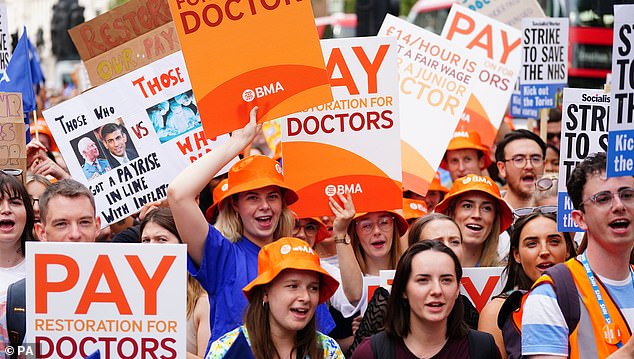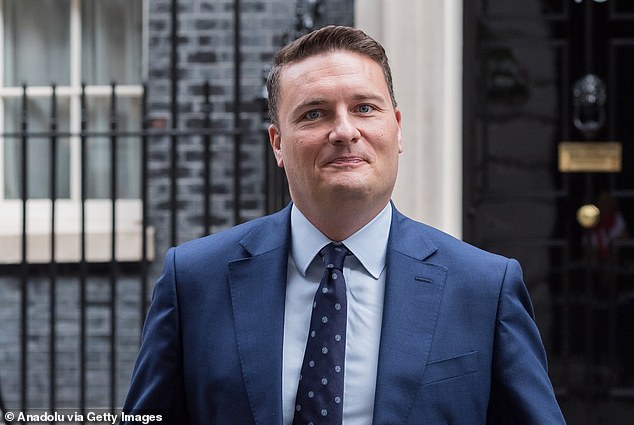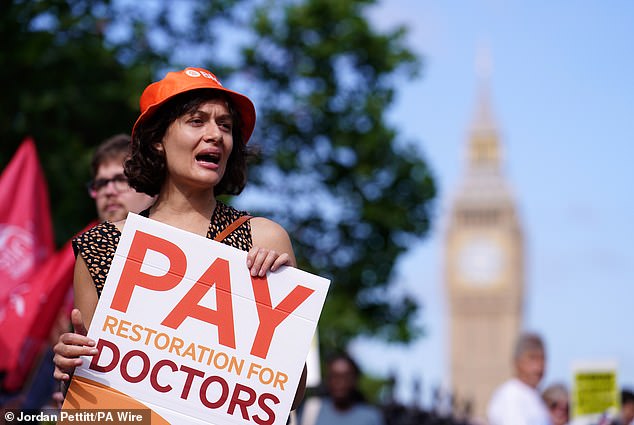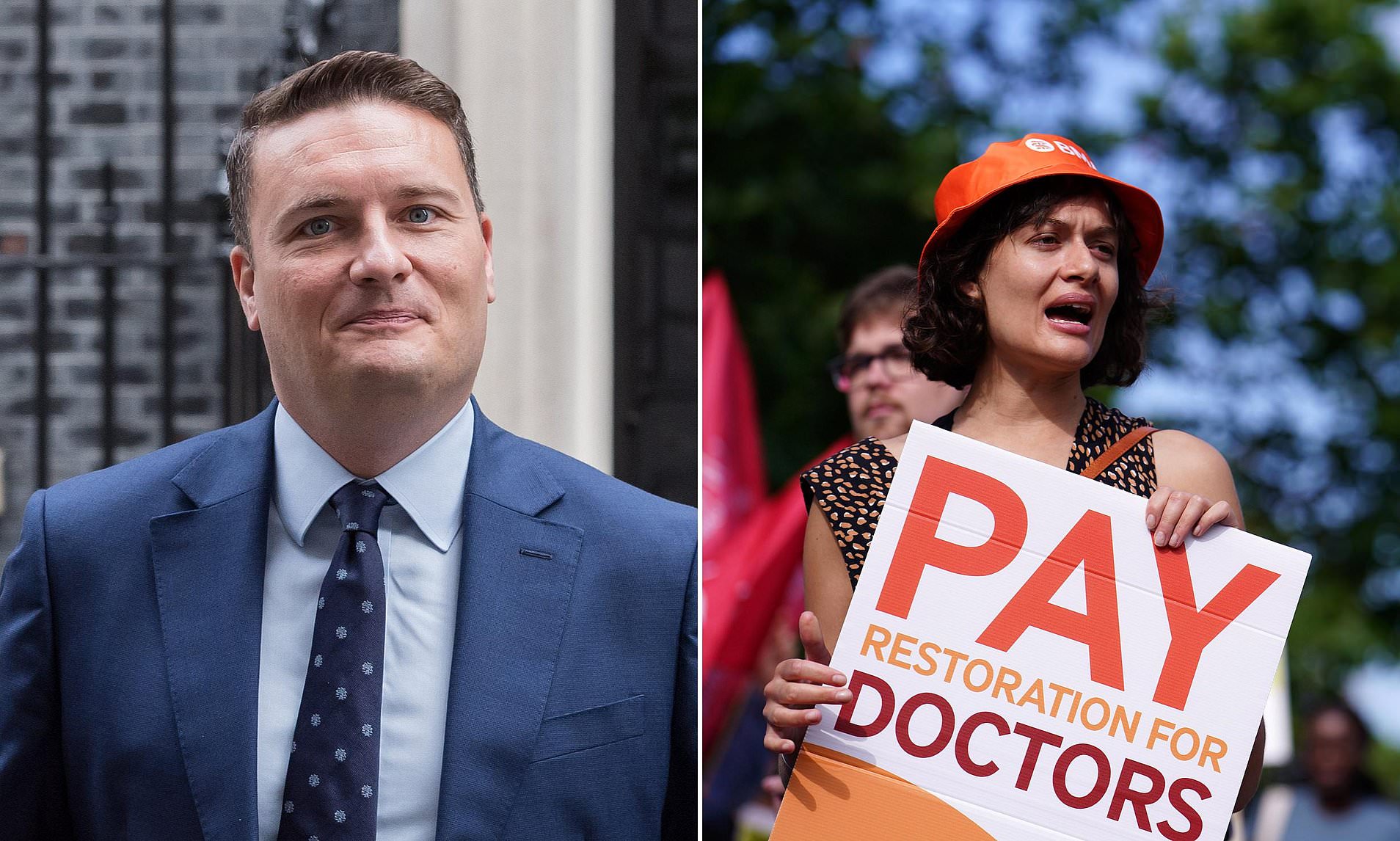- Do YOU have a tale? Email: [email protected]
Doctors rejected Wes StreetingHis final attempt at meal deals was rejected, and he chose to go on strike instead.
Resident physicians, formerly called junior doctors, rejected the Health Secretary’s proposal for more affordable meals and discounted medical supplies, and instead chose a five-day strike.
Mr. Streeting cautioned that he couldn’t make any changes regarding pay, but instead suggested reducing the expenses associated with exams and enhancing financial assistance.The Sun revealed.
On his letter on Monday theLabourMP stated he aimed to settle the conflicts without strikes and believed some progress had already been achieved, although discussions collapsed on Tuesday.
The British Medical Association is calling for a 29 percent salary raise, rather than the 5.4 percent that was first proposed.
The Secretary of Health criticized the British Medical Association for demonstrating ‘total disregard for patients’ and labeled their strike as ‘unwarranted’ earlier this week.
Health officials also swiftly criticized the union, cautioning that their ‘oppressive’ and ‘poorly timed’ actions would lead to extensive disruption and damage.
As many as 50,000 resident doctors—previously referred to as junior doctors—are scheduled to go on strike starting at 7 a.m. on Friday, demanding a 29 percent increase in their wages.


They have already obtained pay increases that exceeded inflation over the last three years, totaling an additional 28.9 percent, after prior strikes.
This features a 5.4 percent increase this year, which is the highest in the public sector.
Nevertheless, the BMA stated that Mr. Streeting’s offer “did not go far enough to justify halting the strikes” and did not include any “meaningful proposal regarding both pay and non-pay aspects.”
Dr. Melissa Ryan and Dr. Ross Nieuwoudt, co-chairs of the BMA’s RDC, stated: ‘Unfortunately, what we observed would not have been substantial enough to impact the daily financial circumstances of our members.’
The non-monetary components of last year’s agreement have still not been fulfilled, which has undermined the trust of our members that future non-monetary aspects will be respected.
Mr. Streeting stated, “Following a 28.9 percent salary increase over the past three years and the largest pay raise in the public sector for two consecutive years, strike action is entirely unwarranted, unprecedented in the history of British trade unionism, and reflects a complete disregard for patients and the broader recovery of the NHS.”
The statement was made following health officials’ warnings that the striking doctors would result in ‘unquestionable harm’ to patients, and a new survey showed that most members of the public now reject the strikes.
A recent YouGov survey shows that over half (52 percent) of individuals in the UK either ‘somewhat disagree’ (20 percent) or ‘strongly disagree’ (32 percent) with the notion of medical professionals on strike due to compensation issues.

In the meantime, just one-third (34 percent) of the 4,954 adults surveyed expressed either ‘somewhat support’ (23 percent) or ‘strongly support’ (11 percent) for doctor strikes.
YouGov reported that the percentage of people backing the strike regarding wages has decreased by five points since they last posed the question in May.
Next, 48 percent were against resident doctors going on strike, whereas 39 percent favored them taking action.
Daniel Elkeles, the head of NHS Providers, commented on the BMA’s statement: ‘This choice is a devastating setback for patients and the NHS.’
We ask resident doctors to assist trusts in reducing the impact by informing them about their strike day schedules.
For instance, we need to make sure there are sufficient staff to handle all cancer, transplant, and maternity care that cannot be postponed or delayed.
Another major concern is the expense.
It is essential that consultants covering shifts adhere to NHS pay rates instead of demanding higher BMA rates, which are not financially feasible.
We tell the BMA to reconsider and withdraw from this extremely harmful choice.







